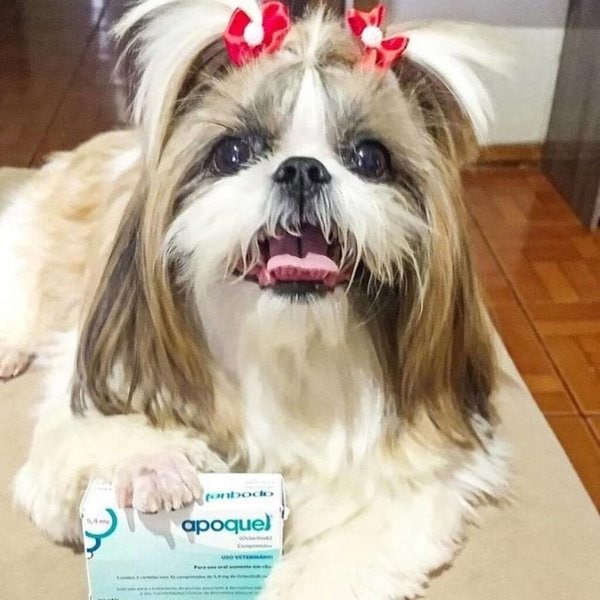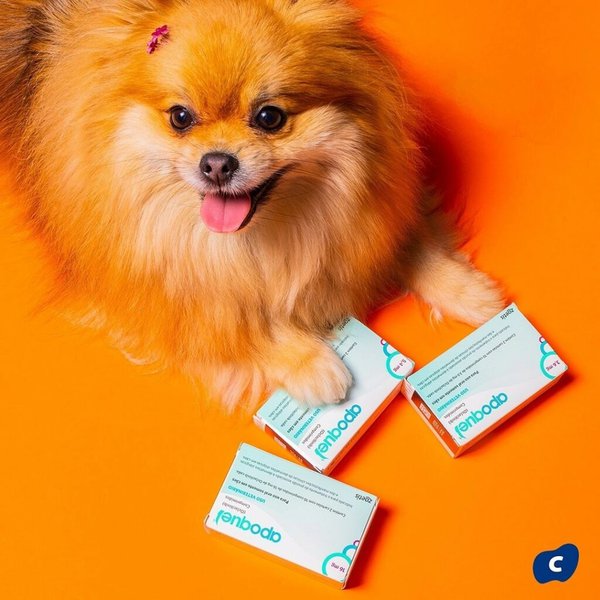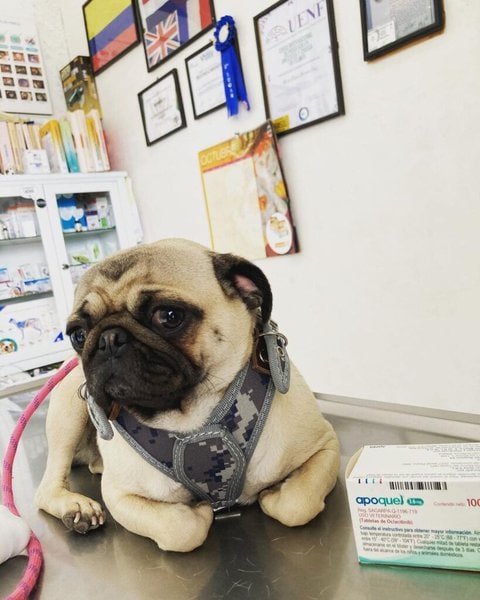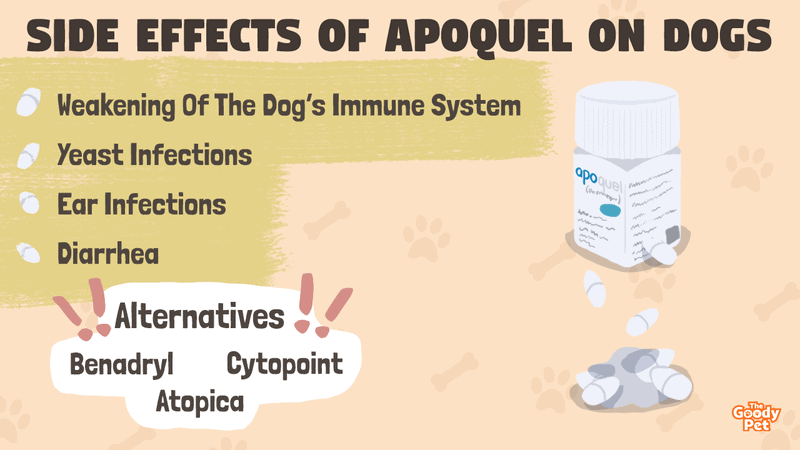Wonder drug, Apoquel, is a new prescription drug developed mainly to treat problems of skin inflammation in dogs. And today’s article contains everything you need to know about treating your doggie’s skin issues with Apoquel. So, is Apoquel safe to use for your dog?
Apoquel is safe to use in dogs that are over a year old, pooches that don’t have a serious infection, and non-breeding, non-pregnant, or non-lactating dogs. While there are dogs that have been on Apoquel medication for several years, major doubts remain over the drug’s long-term sustainability due to its immunosuppressive properties and side effects.
Now that we’ve established that Apoquel is relatively safe for your dog to use, so let’s take a look at when it is necessary to treat your doggie with the drug.
Also, as inferred earlier, Apoquel usage typically comes with several side effects, and more information on this will be provided in today’s article. But before we proceed, let’s dissect the safe, recommended Apoquel dosage for your dog.
How Often Can I Give My Dog Apoquel?
The recommended Apoquel (main ingredient, oclacitinib) dosage for dog use is as follows:
The recommended dosage is 0.18 to 0.27 mg of oclacitinib per pound of body weight, for the first 14 days. During this period, the drug is administered twice daily, with an interval of 12 hours. After 14 days of consistent usage, the dosage should remain the same but administered only once per day.
Due to its immunosuppressive properties, it isn’t recommended that you continue giving your dog Apoquel beyond the stipulated period, and for no reason should you deviate from your vet’s prescription.
How Do You Give A Dog Apoquel?
Administration of Apoquel is oral and may be done anytime, with or without food. Additionally, there is no stipulated process to stop giving your dog Apoquel, and you may just stop administering the drug anytime you feel your dog has sufficiently recovered.
Can I Use Apoquel For All Dogs?
Apoquel is not safe for use in dogs that are less than 12 months old.
Puppies that were dosed with Apoquel displayed unhealthy, high levels of Demodicosis and Pneumonia. Hence, it is recommended that you consult your vet to find a suitable alternative to relieve an itching puppy or a dog that isn’t up to a year old.
You should also steer clear of using Apoquel on dogs with serious infections, pooches suffering from cancer, and pregnant, breeding, or lactating doggies.
How Long Does It Take For Apoquel To Work?
Apoquel works rapidly, and its effect on itching dogs may be noticed as early as four hours after application!
In mild cases of itching, Apoquel typically brings complete relief to the affected pooch within two days of consistent usage. More serious cases of itching may take longer to alleviate, but Apoquel is usually able to bring such itching under control within 7 to 14 days of dedicated use.

What Does Apoquel Do For Dogs?
Controls The Itch
Apoquel was designed primarily to treat itching due to allergic reactions in dogs, and it is an effective solution, bringing almost immediate relief to the pooch.
Treatment Of Chronic Skin Issues
Apart from its use in curbing itching in dogs, Apoquel can also be used to treat and manage skin infections and diseases in dogs, although this is a fairly lengthy process.
When Does It Become Necessary To Give A Dog Apoquel?
You may need to get an Apoquel prescription for your dog from your vet if you notice symptoms such as:
- Excessive scratching
- Excessive body licking
- Increased chewing
- Hair loss
- Skin discoloration
The above can also be signs of a more serious condition; hence, you shouldn’t attempt self-medication to treat these symptoms without consulting your vet first.
How Long Does Apoquel Last In A Dog?
The antipruritic effects of Apoquel use tend to wear out pretty quickly, typically between 12 to 24 hours after use, which is why a daily dosage is recommended by the manufacturers.
Is Apoquel Safe For Dogs Long Term?
The veterinary world continues to be divided on whether or not Apoquel is safe for long-term use in dogs, and frankly speaking, there remain doubts over its long-term sustainability.
The truth is, most drugs come with potential side effects; hence, you have to weigh the pros and cons before making a decision on whether or not Apoquel is safe for your pooch.
Apoquel works wonders when it comes to bringing instant relief to itching dogs, but its immunosuppressive properties mean continued usage may weaken your fido’s immune system.
Ultimately though, the decision to place your dog on immunosuppression is yours to make. And if you decide to persist with Apoquel, then you may need to regularly take your dog to get screened for early detection and treatment of possible side effects.

What Are The Side Effects Of Apoquel Have On Dogs?
While Apoquel is, undeniably, an effective solution to the problem of dog itching, there are several side effects canine owners should be on the lookout for after application of the drug on their pooch’s body.
These side effects include:
Weakening Of The Dog’s Immune System
Studies have shown that repeated use of Apoquel may weaken a doggie’s immune system due to the drug’s immunosuppressive properties.
This weakening of the immune system typically leaves the dog much more susceptible to infections such as Pneumonia and Demodicosis, along with neoplastic health conditions.
Yeast Infections
Another common side effect of continuous Apoquel use is the development of yeast infections. Repeated use of Apoquel suppresses the activity of bacteria that help keep yeast cells under control, thereby leading to these yeast cells running amok and causing problems for a doggie.
Ear Infections
Disorders of the ear canal, known as Otitis Externa, has also been observed in dogs that are under or have received Apoquel medication. This condition typically causes inflammation of the cells that line the external ear canal.
Diarrhea
Dogs treated with Apoquel may also suffer diarrhea. However, the good news is that diarrhea caused by the use of Apoquel is not predominant and usually stops with continued usage of the drug.
Rare Side Effects
Some studies have also speculated that the use of Apoquel leads to increased aggression in dogs that are the subject of the application.
However, it should be noted that this tendency to display aggressive behavior, along with side effects such as an increase or reduction in appetite, weight loss, and polydipsia, are relatively rare and do not have concrete links to Apoquel use.
Other Side Effects
Apart from those listed above, side effects of Apoquel use for dogs may include:
- Vomiting
- Weakness
- Dermal lumps
- Skin lesions or growth
- Seizures
- Body tremors
- Toe cysts

What Kind Of Drug Is Apoquel?
To understand what kind of drug Apoquel is and how it works to stop symptoms of allergic reactions in dogs, let’s have a quick look at a doggie’s anatomy.
When a doggie is exposed to an allergic trigger, kinase receptors (JAK1, JAK2, JAK3, and TKY2) pick up on these signals and communicate with each other and the brain to produce cytokines that induce what we know as allergic reactions.
How Does Apoquel Work In Dogs?
Once Apoquel is given to a dog, it is immediately absorbed into the bloodstream. Once in the bloodstream, Apoquel springs to action as an inhibitor and prevents these JAK receptors from communicating with each other, thereby suppressing their effects and relieving itching in your dog.
Apoquel is a relatively new drug on the allergy-combating scene, and dog owners thus tend to display an air of skepticism when it comes to administering the drug to their furry friends. However, the drug is safe to use, and even though usage may come with side effects, these typically stop once the medication is discontinued.
Where Can I Get Apoquel?
Apoquel is a popular over-the-counter drug that is widely available at local pet stores and medicine stores, but you’ll typically need a vet’s prescription to buy from those places. You can also buy Apoquel for your dog on several online websites.
Is There An Alternative To Apoquel?
If, for one reason or the other, you’re wary of the potential side effects and are undecided on the use of Apoquel to check itching in your dog, there are several viable alternatives you can use; Some of these alternatives include:
- Antihistamines like Benadryl
- Atopica
- Cytopoint
Alternatively, you can try changing your dog’s diet, incorporating supplements into your pooch’s meals, or minimizing your furry friend’s exposure to allergens as a means of curbing allergic reactions. And it has to be said that the natural method of dealing with allergies in dogs remains the best and healthiest treatment method available yet.

Related Questions
Which Is Better Apoquel Or Cytopoint? Apoquel and Cytopoint are both effective at treating a dog’s allergic reaction, making a choice between both is dependent on certain factors. Apoquel is the better option if what you seek is a medication that’ll be out of your doggie’s system within a few days after use. However, if your dog is less than a year old, then you should treat its itching with a Cytopoint injection.
Can Apoquel Be Used With Antihistamines? Yes, it is possible for Apoquel to be used with certain antihistamines as part of a combination therapy that is typically used to treat allergic reactions in dogs. And apart from antihistamines, a vet may also prescribe a combination of Apoquel with antibiotics, steroids, antifungals, or sublingual immunotherapy for use in dogs.
Is Apoquel Similar To Benadryl? Apoquel is similar to Benadryl in the sense that both drugs are designed to counter the effects of allergic reactions in dogs. However, while Benadryl is a typically mild form of treatment and works mainly on the surface, Apoquel takes things a bit further by traveling directly to the brain to prevent itch signals from spreading to a doggie’s nerves.





